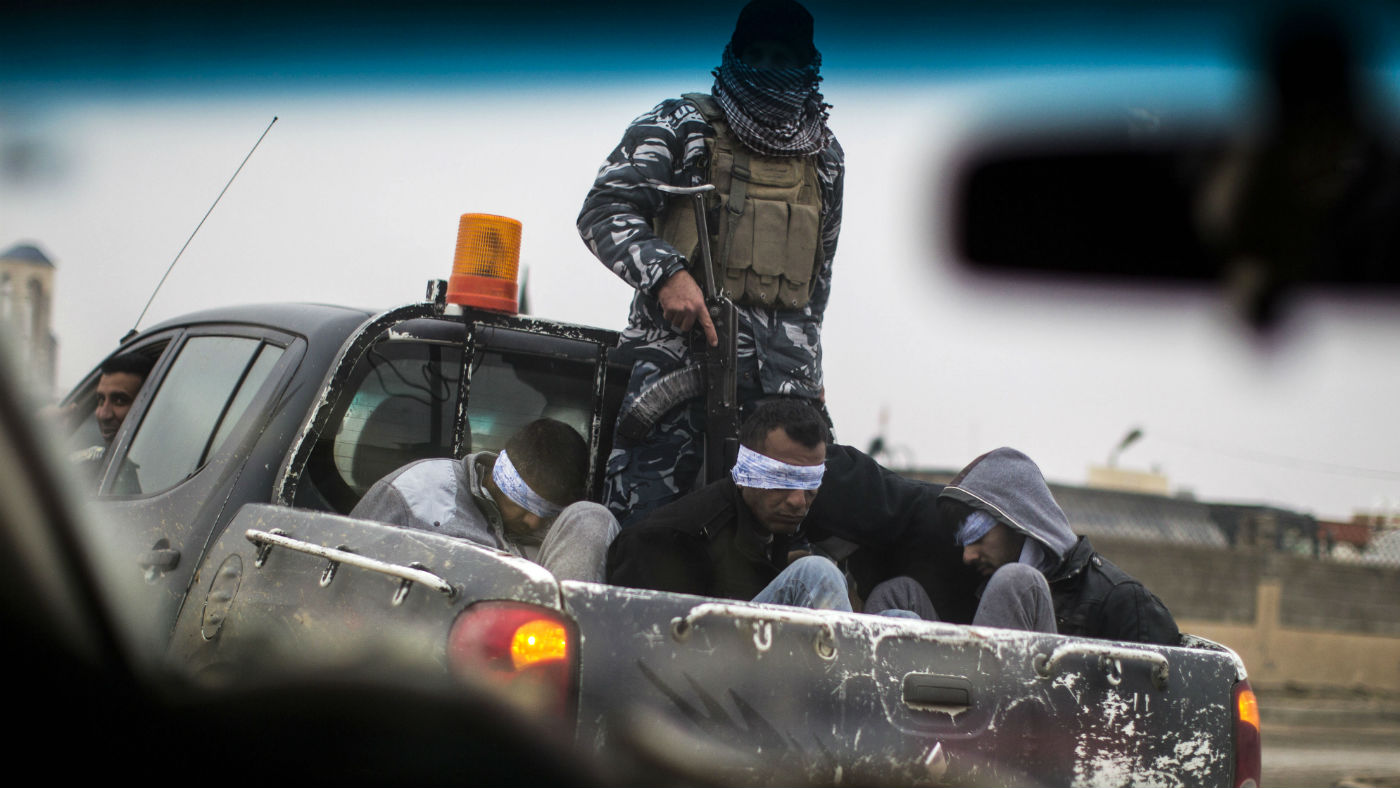Kurds call for ‘Nuremberg-style’ tribunal for Islamic State fighters
There is international disagreement about what to do with 1,000 foreign fighters in Kurdish prisons

A free daily email with the biggest news stories of the day – and the best features from TheWeek.com
You are now subscribed
Your newsletter sign-up was successful
The Kurdish-led administration in northern Syria has called for the creation of a Nuremberg-style international tribunal to try thousands of suspected Islamic State militants.
More than 60,000 people streamed out of the last part of the Islamic State “caliphate” in the weeks before it finally fell to the Kurdish-dominated Syrian Democratic Forces (SDF) on Saturday.
Having finally defeated IS militarily, attention is now turning as to what to do with the 1,000 foreign fighters currently being held in Kurdish prisons.
The Week
Escape your echo chamber. Get the facts behind the news, plus analysis from multiple perspectives.

Sign up for The Week's Free Newsletters
From our morning news briefing to a weekly Good News Newsletter, get the best of The Week delivered directly to your inbox.
From our morning news briefing to a weekly Good News Newsletter, get the best of The Week delivered directly to your inbox.
The BBC reports that “many Western governments have refused to repatriate their citizens amid concerns over the potential security risks they may pose, as well as the challenges of gathering evidence to support prosecutions”.
Last month, Donald Trump told the European Union it must take back IS fighters captured by US-backed forces in Syria and put them on trial.
The US president warned Britain and its European allies are running out of time to prevent a surge in terror attacks on home soil.
Some countries, such as France and Russia, have signalled they are willing to take back former jihadi citizens, while others like Britain have so far remained hostile to the idea of repatriating home-grown hardline Islamic extremists.
A free daily email with the biggest news stories of the day – and the best features from TheWeek.com
In total around 900 Britons travelled to the region to join IS, according to the Home Office, and around two dozen are now thought to be in Kurdish prisons and camps in northeast Syria.
In a bid to break the impasse, the Kurdish government in Syria last month first floated the idea IS foreign fighters could be tried in a “Nuremberg-style” international tribunal if Britain and other countries refuse to bring them home.
Now the Kurdish administration has repeated its call for “a special international tribunal in north-east Syria to prosecute terrorists” to ensure that trials are “conducted fairly and in accordance with international law and human rights covenants and charters”.
“We don’t have other options,” Abdulkerim Umer, a foreign affairs official in the Kurdish-led administration, told the Associated Press. “No one wanted to take the responsibility (of repatriating their nationals). We can’t put up with this burden alone.”
Yet the idea has already been met with opposition from some western governments.
James Jeffrey, the US’s top diplomat in Syria, said it was not under consideration at the moment.
Meanwhile Germany, which said bringing detained German militants home would be “extraordinarily difficult,” has argued that setting up such a tribunal would “raise many political and legal issues, which would require careful evaluation by the international community.”
The Times reports “Kurdish authorities are already holding trials for Syrian IS members but to set up an international court would require the co-operation of President Assad, whose government is still recognised as the sovereign ruler of the areas that are currently controlled by the Kurds”.
“Given that there are growing calls for Mr Assad himself to face an international court, he is unlikely to acquiesce to such a plan” says the paper.
However, the warnings from senior Kurdish officials about what would happen if foreign IS fighters are left in Syria are stark.
The administration's foreign affairs chief told the BBC’s Aleem Maqbool that “leaving dangerous members of IS in an unstable region held by an administration ill-equipped to process them was asking for trouble; and leaving children to remain surrounded by the harmful ideology into which they were born was storing up profound problems for the future”.